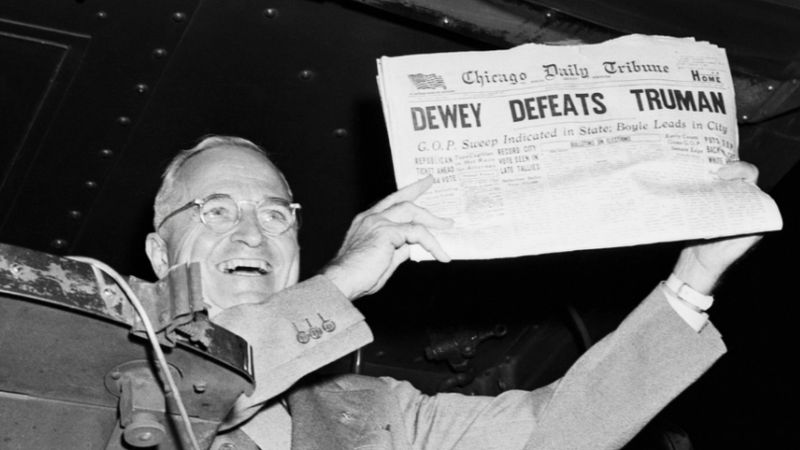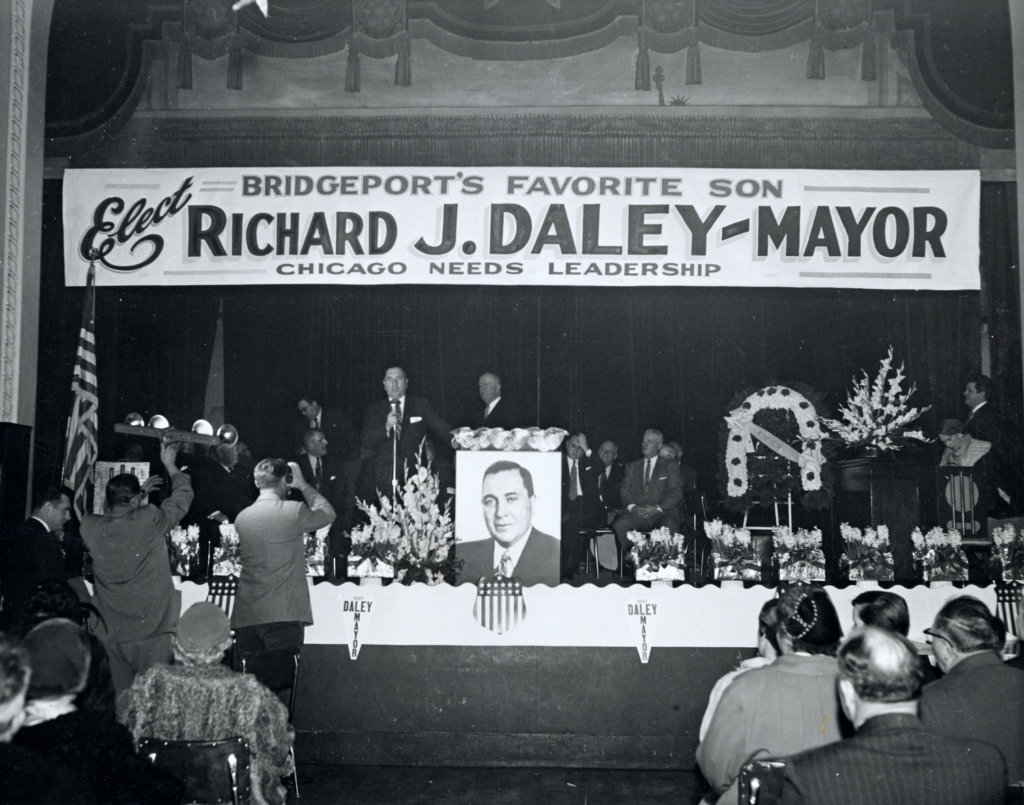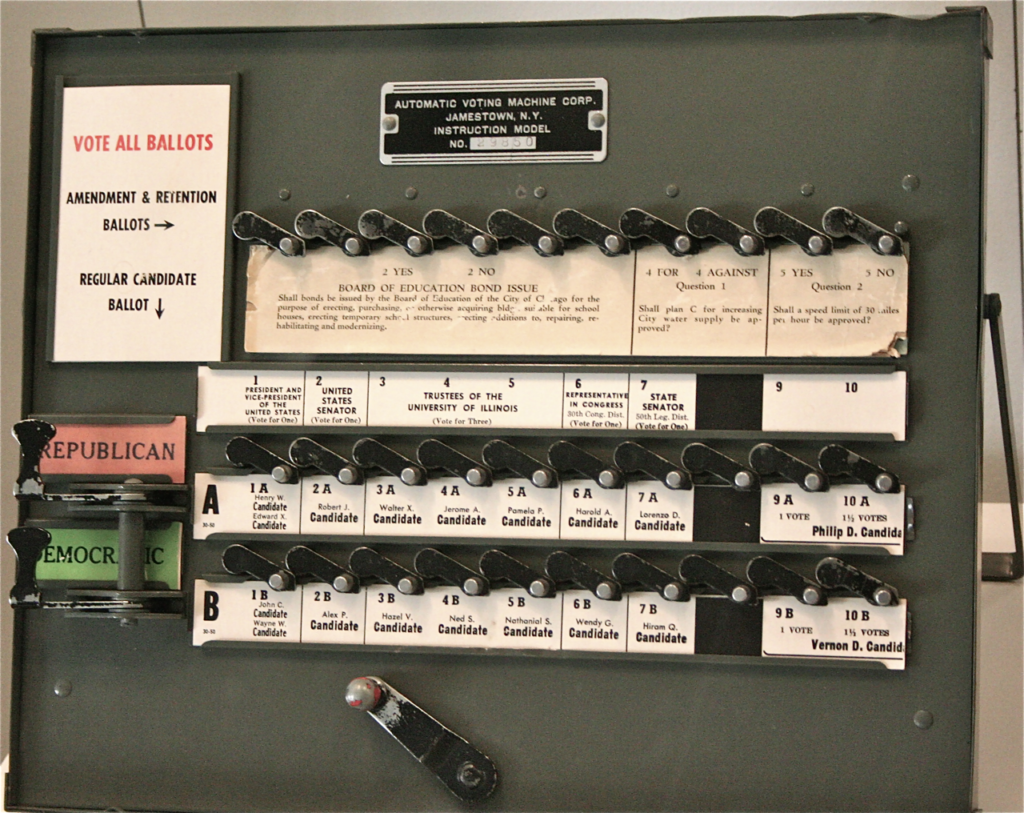– By Tom Schaffner
If you enjoy reading about the history of Chicago and want to learn more about the city and its history, then consider signing up for our blog newsletter!
From “ghost” voters to dirty tricks, vote stealing to intimidation tactics, Chicago elections chicanery has, over the years, become nothing short of political sport. Messing with elections — in some way, shape or form — is what we do. It’s known as the “Chicago way.”
But not, apparently, during the 2020 presidential election. With voter turnout at an all-time high and extra attention focused on the integrity of the voting process at post offices, polling places and vote counting centers nationwide, officials proclaimed the 2020 election as one of the “cleanest” in decades; that “fraud” was virtually non-existent. In fact, turnout was so high, I didn’t even need to wear my “Two Ballots Please, I’m From Chicago” button like I did in the 1988 presidential election. I felt naked without it.
Such honesty and cleanliness is enough to make an old, died-in-the-wool Chicago election watcher (like myself) nostalgic for the days when Chicago elections featured daring fraudulent behavior and political hijinks. That said, here are some “Great Moments” in Chicago election history:
- Follies of 1856
- Deafening Support
- Election Insurrection
- Idenitfying Judas
- An Explosive Victory
- Beat the Press
- Don’t Mess with the Machine
- Quote for the Ages
- Stealing Home
- Simple Math
- Actually Seeing a Few “Ghosts”
- A Man of Conviction
Follies of 1856
Chicago Mayor Thomas Dyer is defeated in his re-election campaign by Democratic Congressman “Long” John Wentworth in a landslide. It became evident during the Chicago elections that voters never forgave Dyer for his misbehavior four years earlier when he decorated horse-drawn carts with hundreds of prostitutes and patronage workers and made them the centerpiece of his inauguration day parade.
Deafening Support
Joseph Medill, editor of the Chicago Tribune, devises a plan in 1860 to ensure that his candidate, Abraham Lincoln, wins the Republican nomination for president at the party’s upcoming convention in Chicago. Thousands of Lincoln “supporters” are brought to the city free of charge (by train) in an effort to stack the convention hall in favor of Lincoln. The supporters are told to report early to the convention hall, jam the doors, fill as many seats as possible and begin to shout in favor of their candidate. They are so effective that a newspaper reporter writes: “It was like all the hogs ever slaughtered in the Cincinnati stockyards giving their death squeals — all at the same time.”
Election Insurrection
Democrats in Chicago team up with Confederate sympathizers in an effort to derail Lincoln’s re-election in 1864. The plan is to release more than 8,000 Confederate prisoners of war that are held at Camp Douglas during the Chicago elections, have them stuff the ballot boxes in favor of the Democratic candidate, Gen. George McClellan, and then sack and loot the city, burning everything in their path that they could not carry. The “Chicago Conspiracy,” as it is called, is thwarted when informers tip the Camp Douglas commander in advance of the raid and the insurrectionists are arrested at their hotel.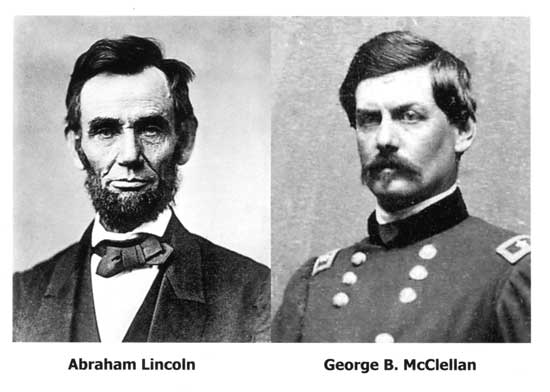
Identifying Judas
During the Chicago elections in 1915, Oscar Depriest, a Black alderman, is reviewing the post-election votes in his all-Black ward. He sees 272 total votes cast — 271 of which are for his mayoral candidate, Republican “Big Bill” Thompson. “I know who double-crossed here!” Depriest exclaims in outrage. “Go out and find Mose Jackson and give him a raking over the coals.”
An Explosive Victory
To assure “Big Bill” Thompson’s re-election as mayor in 1927, Al Capone sends more than 1,000 goons and thugs into the city on the day of the primary. The goon squad breaks legs, arms, shoots Thompson’s political foes and throws hand grenades into polling places where Thompson was expected to do poorly. So many hand grenades are thrown that the event becomes known as the “Pineapple Primary.” Capone’s thugs repeat their activities on election day and Thompson is re-elected.
Beat the Press
Because of a printers’ strike, the Tribune’s 1948 Chicago elections edition goes to press hours earlier than usual, before the polls have even begun to report results. Based on a sampling of voters that has not failed the newspaper in its election coverage in more than 20 years, the Tribune projects the winner of the presidential election with the headline, “Dewey Defeats Truman.” The poll and the Tribune are wrong and the next morning, a grinning Harry Truman is photographed derisively waving the front page of the newspaper to a crowd of supporters.
Don’t Mess With the Machine
In 1955, Republican Mayoral Candidate Robert Merriam attempts to beat his opponents to the punch by mailing campaign literature to a purloined list of registered Democratic voters. But the Democrats intercept the literature and send it back to Merriam with “addressee unknown” and “deceased” stamp marks. In retaliation, the Democrats and their candidate, Richard J. Daley, play the religion card — they send thousands of unsigned letters highlighting Merriam’s recent divorce and the children he abandoned to Catholic neighborhoods throughout the city. After the election, a victorious Daley gets a new license plate for his car. It reads “708 220” — the number of votes he received in this, his first citywide election. He keeps the license plate on his car for the next two decades.
Quote for the Ages
Asked why the reform platform of Robert Merriam wasn’t enough to carry him past Machine politician Richard J. Daley in the mayoral race during the 1955 Chicago elections, 43rd Ward Alderman Mathias “Paddy” Bauler, a longtime city tavern owner, explained it simply: “Chicago ain’t ready for reform yet.”
Stealing Home
In 1960, Mayor Daley is credited with steering the presidential election in the direction of John F. Kennedy with dirty tricks that only a Machine magician could muster. Kennedy miraculously carried Chicago by more than 400,00 votes although he carried Illinois by only 8,000 votes. On election night, the president’s brother, Robert Kennedy, allegedly called Daley and asked, “How many votes do we have in Cook County?” Daley allegedly responded, “How many do you need?”
Simple Math
Asked why Democratic Nominee Hubert Humphrey didn’t carry Illinois in the 1968 presidential election, Mayor Daley replied, “He didn’t get enough votes.”
Actually Seeing a Few “Ghosts”
Two Democratic precinct workers and a Republican election judge are charged with 22 counts of “blatant” election fraud during the 1978 Illinois off-year elections. During the ’78 Chicago elections, a police patrolman reported that he heard bells ringing repeatedly at one voting machine in a North Side precinct. When he walked over to the machine, he saw one election official falsifying voters’ registrations and another using a voting machine to register multiple votes. The policeman asked what the men were doing. “We have six more to do,” one replied. “These are ghost voters.”
A Man of Conviction
In the 1987 mayoral election, political newcomer Sheneather Butler edges incumbent Alderman Wallace Davis, Jr. by the paper-thin margin of 100 votes. Incredibly, Davis has conducted his entire two-month campaign from a federal prison cell in the Metropolitan Correction Center where he was incarcerated and awaiting trial on federal bribery and extortion charges. He is believed to be the first alderman in the City Council’s 150-year history to seek re-election from a jail cell.
Holder of two journalism degrees, including a masters from Northwestern University, Tom Schaffner is a native of the Chicago area and has spent nearly 50 years as a writer, editor, publisher and professional communications consultant. He was also the founder, editor, and publisher of the Chicago File, a newsletter for former Chicagoans. Tom is also the co-owner of L Stop Tours.
POPULAR TRIPS
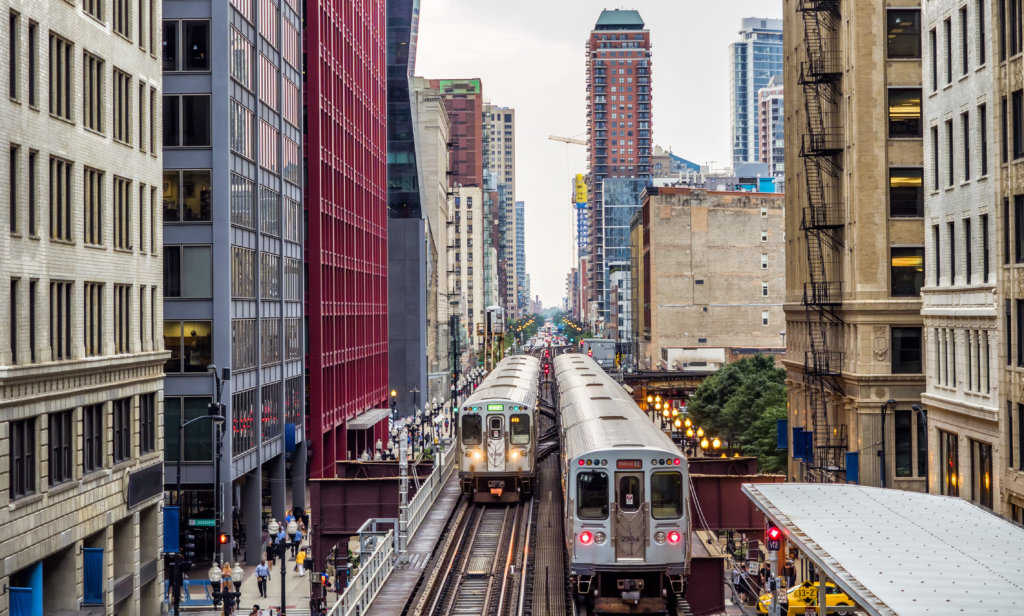
Duration: 3.5 hours
Price: Adult $65
- Tour price includes transit fees. Food/beverages purchased by guests.
- Tour begins and ends in the Loop.
- Walking distance: 1.5 miles
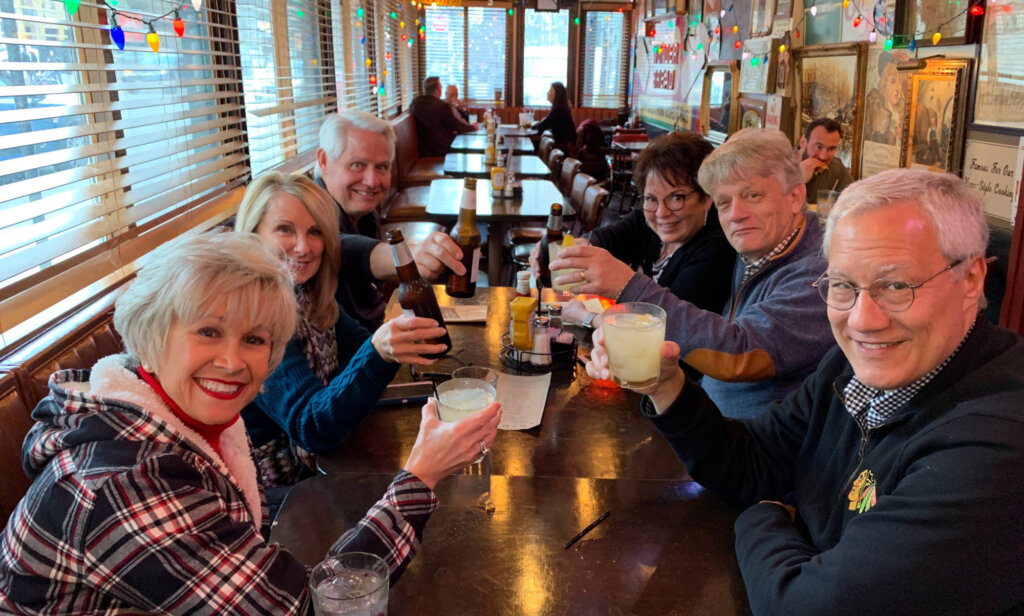
Duration: 3.5 hours
Price: Adult $65
- Price includes transit fees. Food/beverages purchased by guests.
- Tour begins and ends in the Loop.
- Walking distance: 1.1 miles
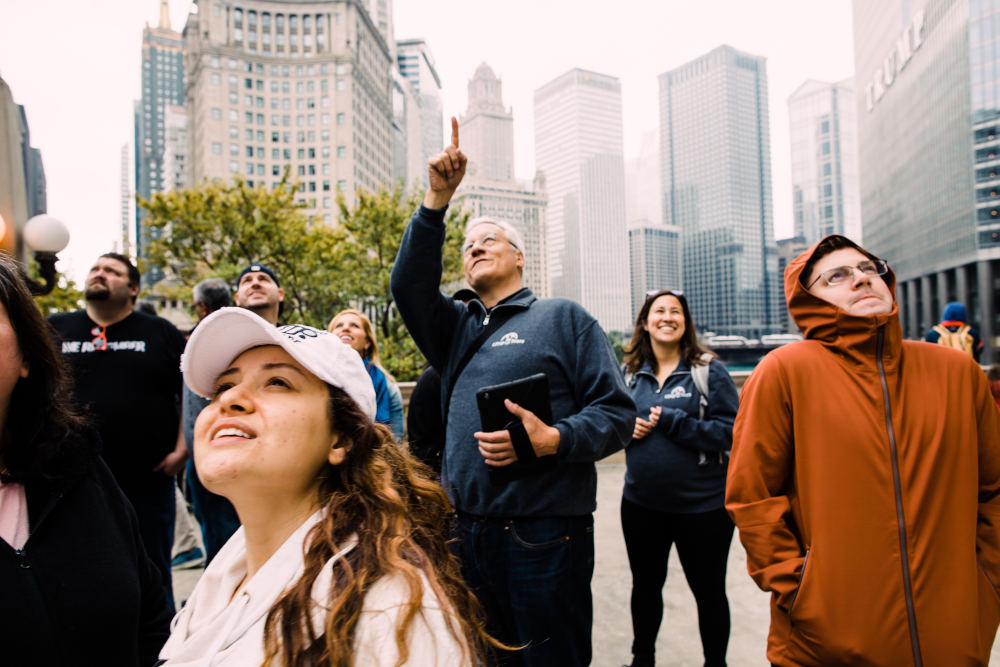
Duration: 3 hours
Price: Adult $65
- Tour price includes professional tour guide, train ride. Food/beverages purchased by guests.
- Tour begins and ends in the Loop.
- Walking distance: 1.5 miles
NEWSLETTER
Stay in the LOOP and subscribe to our monthly newsletter today!

